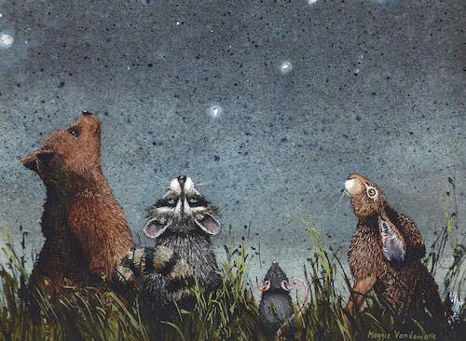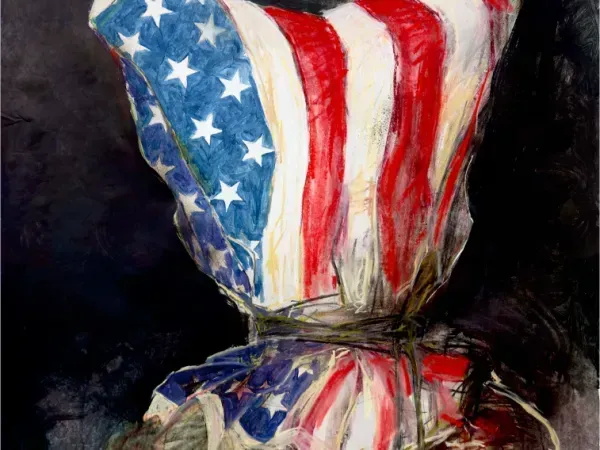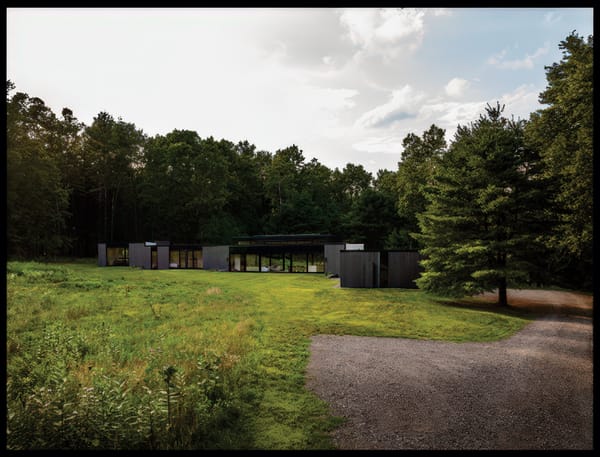By Robert Burke Warren
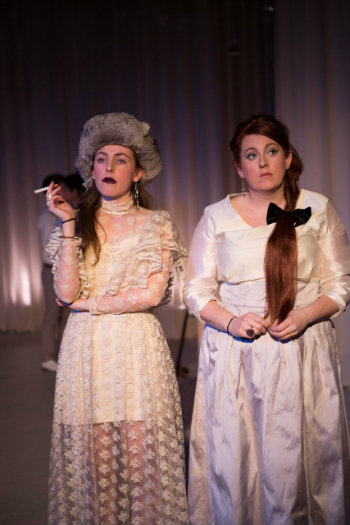
Fame lust. Celebrity worship. Delusion. Codependency. Jealousy. Unrequited love. Wayward teenage girls. Are these the makings of modern-day tabloid fodder? Perhaps. But… Anton Chekhov’s revered 1895 ensemble comedy The Seagull? Yes. Tina Satter, director, playwright, very fast talker, and major creative force behind Obie grant-winning, NYC-based theater group Half Straddle, was amazed at The Seagull’s modern-day relevance, too. Upon seeing a 2009 Broadway production starring Kristin Scott Thomas, she marveled at Chekhov’s perspectives on the temperaments of performers, yeoman artists, fans, and young girls in the throes of change. With Half Straddle, she mounted her “response," Seagull (Thinking of You). After several work-in-progress runs, the show premiered at NYC’s P.S. 122 in January. Then came the Obie grant. Now, Seagull (Thinking of You) descends on cutting edge theater-focused Mass Live Arts festival’s first summer season. Following Seagull (Thinking of You), which runs July 18, 19, 20, will be Half Straddle/New York City Players' collaboration/work-in-progress Mona’s House of Dance (July 25, 26, 27) and Radiohole’s Inflatable Frankenstein (August 1, 2, 3). Mass Live Arts’ artistic director Ilan Bachrach is evangelical about bringing these experimental productions to the Berkshires: “With some of the most educated and eager audiences around," he says, “I think it’s long overdue that we seek out and support those who have dedicated their lives to pushing the boundaries of what a live performance can be."
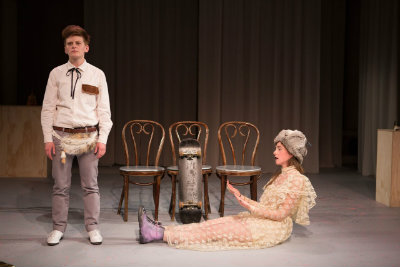
So what constitutes a “response" to a classic play? Satter sourced Seagull (Thinking of You) from Chekhov’s original, as well as Chekhov’s letters, various biographies, and her own dealings with ensembles, both offstage and in the context of a theater company. “It’s not an adaptation at all," she says. “It’s a continuation of my experience with The Seagull, and working with the people I made it with. It's like I put it into a snow globe and shook it up. There's a through-line that sort of follows the play, in which I use the six main characters [Nina, the ingénue, Masha, the bored daughter of the working-class property manager, Trigorin, the well-known writer, Treplyov, the failed experimental playwright, Irina Arkadina, the fading actress, and an amalgam of Dorn, the doctor, and Sorin, Irina’s put-upon brother]. I took sections from the play, or I re-wrote them, or stuck in a section with a piece of one of the letters." “The Broadway production was really simple and beautiful," she continues. “I got obsessed with [ingénue] Nina when she says, ‘I love the lake the way a seagull does.’ I thought, ‘Chekhov is rendering the inner and outer lives of the young girls in the cast [dreamy Nina and bored, snuff sniffing, Wednesday Addams-ish Masha]. I'm very interested in adolescent girls and the changes they experience. That was my way in. So I re-read it and I thought, ‘This play is amazing… it's about people trying to be writers and actors, and this group filled dysfunctionally with love and weird codependency, and this really intense stuff between mothers and sons and friends. And the group dynamic felt very similar to working with a company, which I’ve done since we founded Half Straddle in 2008. “Chekhov captured things that are very specific to his characters," she continues, “but are totally universal and more relevant now than ever. It's amazing that he caught that. Trigorin the writer, for instance, is a super sophisticated drawing of someone who's achieved a certain level of success, and has really complicated feelings about that. That feels contemporary to me. And [in Seagull (Thinking of You)] Masha is a skateboarder who wears black Goth lipstick. They all smoke. And we use both original music and pieces of songs by modern female-fronted Russian folk metal band Arkona."
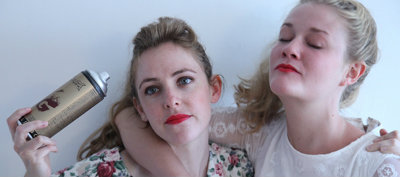
Satter is excited about Mona’s House of Dance, too. “I'm obsessed with groups of people," she says. “I wrote a play about a football team [In the Pony Palace/Football] , I wrote a play about a nurse hospital. I love the dynamics and aesthetics of group scenes. But for Mona's, what's experimental for me is that the characters don’t know each other. There's more distance, but they all have to interact when they have a commonality of space, but no woven backstory like in Seagull. I'm interested in repressed, slow moving things. To find the dramatic stuff in that."
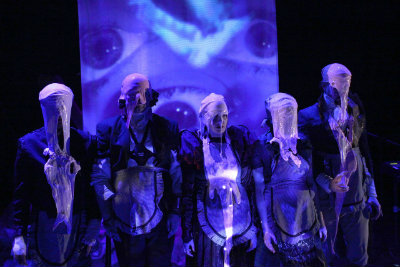
On the other side of the spectrum is Radiohole’s critically acclaimed Inflatable Frankenstein, which closes out the festival with “a sticky, goopy, embarrassing, all-over-the-place and absolutely necessary mess" as Ben Brantley of The New York Times described it. Exploring James Whale’s classic films and the tragic life of novelist Mary Shelley, Inflatable Frankenstein is brimming with whims, technological absurdity, and massive amounts of bodily fluids. Ilan Bachrach says, “Radiohole is the closest theater will ever be to punk rock. Their technological innovation has trickled into mainstream theater without most people knowing it. They continue to shape the future of theater with their work." Between Radiohole and Half Straddle, Mass Live Arts’ dream of bringing offbeat, challenging, and deliriously fun theater to the Berkshires is well under way. Mass Live Arts / 13Daniel Arts Center Bard College at Simon's Rock 84 Alford Road Great Barrington, MA 01230 Seagull (Thinking of You)July 18, 19, 20, at 8 p.m. Mona’s House of DanceJuly 25, 26, 27, at 8 p.m. Inflatable FrankensteinAugust 1, 2, 3, at 8 p.m.



